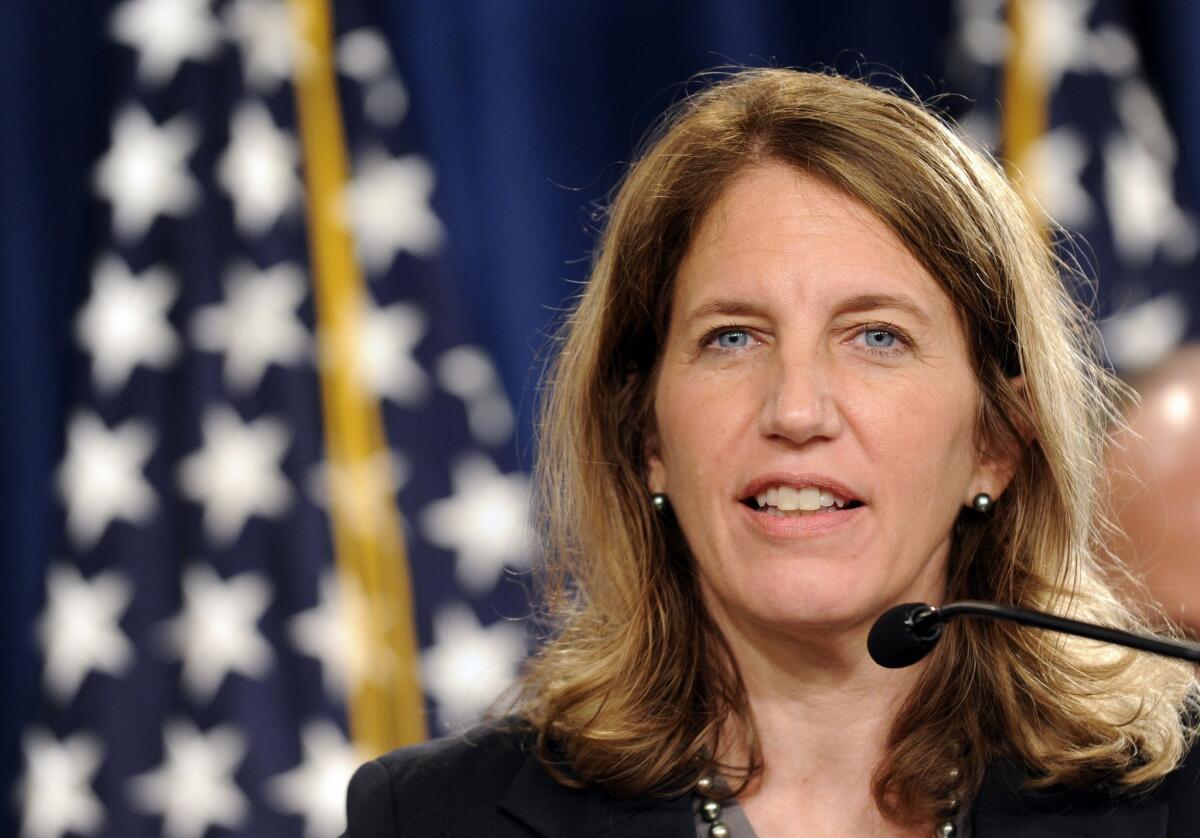Government issues new revision on birth control insurance mandate

The Obama administration issued a new rule Friday aimed at winding down its years-long fight with religious groups over the requirement in its landmark healthcare law that companies provide insurance that covers contraceptives.
The new rule will allow employers to register objections to paying for such care with the government, which would then arrange for insurers to provide coverage to women seeking it, according to the rule published in the federal register Friday. Previously, the rule called for groups to file their objections directly with insurers.
“Women across the country deserve access to recommended preventive services that are important to their health, no matter where they work,” said Health and Human Services Secretary Sylvia Burwell in a statement. “Today’s announcement reinforces our commitment to providing women with access to coverage for contraception, while respecting religious considerations raised by nonprofit organizations and closely held for-profit companies.”
For the Obama administration, the step was the latest of several attempts to accommodate religiously affiliated nonprofit groups and businesses that object to providing the contraception coverage while also making the coverage available to women. Despite several adjustments to the Affordable Care Act, the groups — including Roman Catholic bishops, schools and some privately held businesses —– have argued that the law’s contraception mandate forces them to violate their religious beliefs.
Friday’s action comes in the wake of the Supreme Court’s Hobby Lobby decision in June, which declared that some private employers have a religious right to be exempted from the law, a ruling seen as a victory for social conservatives. The court also granted Wheaton College, a small Christian school in Illinois, a temporary exemption from the mandate, suggesting justices could issue a broader blow to the mandate if the Obama administration did not tweak the law.
The administration chose a path designed to try to withstand another test before the high court. The new rule, as well as a similar proposal for businesses also published Friday, follows the logic endorsed by Justice Anthony M. Kennedy, the swing vote in the Hobby Lobby case. He argued that the administration should accommodate objections by allowing insurers to cover the cost.
The initial reaction from religious groups to Friday’s move offered little sign the conflict was close to resolution. Archbishop Joseph E. Kurtz, president of the United States Conference of Catholic Bishops, said he was disappointed the new rule only adjusted the process rather than expanded the pool of employers that might seek an exemption.
The Family Research Council, a leading conservative advocacy group, decried the change. “It is simply another clerical layer to an already existing accounting gimmick that does nothing to protect religious freedom because the employer still remains the legal gateway by which these drugs and services will be provided to their employees,” said Arina Grossu, director for the council’s Center for Human Dignity.
The groups are seeking a full exemption from the mandate like the one granted to churches.
A lawyer for the Becket Fund for Religious Liberty, which represents Wheaton and others, said the group was reserving judgment until the rule was published. “These charities want to continue following their faith. They want to focus on ministry — such as sharing their faith and serving the poor — without worrying about the threat of massive IRS penalties,” said the lawyer, Lori Windham, calling the new rule part of the “the administration’s long retreat” on the issue.
Obama administration officials said they did not consider the new rule a retreat, only a minor change.
Under the previous accommodation, religiously affiliated nonprofit groups that objected to covering some or all contraceptives for employees were to file a form certifying their objection and notifying their insurers. After that, their insurance carriers were to have provided coverage at no added cost. Insurers have been willing to go along with that on the belief that the cost of paying for contraceptives is offset by the savings from not having to pay for pregnancies.
The college objected, arguing that notifying the insurers made them complicit. Under the new rule, the employers can now notify the government of their objections and the government will notify the insurers that enrollees should receive the separate coverage.
The administration is proposing a similar work-around for closely held businesses — those with relatively few investors — that object to the mandate. In the Hobby Lobby decision, the court ruled that such a business qualified as a “person” and that providing the full range of contraceptives put a “substantial burden” on its exercise of religion.
The administration plans to solicit comment on how it could extend a similar accommodation to those businesses and will seek to change the definition of a closely held business, officials said.
In his statement, Archbishop Kurtz said he saw that proposal as a step back.
“The proposed regulations would effectively reduce, rather than expand, the scope of religious freedom,” he said.
kathleen.hennessey@latimes.com
More to Read
Start your day right
Sign up for Essential California for news, features and recommendations from the L.A. Times and beyond in your inbox six days a week.
You may occasionally receive promotional content from the Los Angeles Times.







